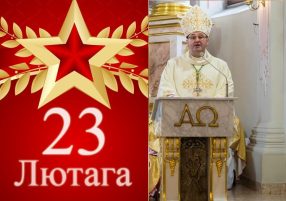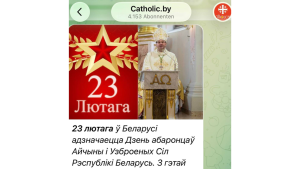George Weigel. The Holy See and Thug Regimes

The list of grave issues that must be addressed during a future papal interregnum, and by the cardinal-electors in a conclave, continues to grow.
The finances of the Holy See are arguably in worse shape than at any time since the papal interregnum of 1922; then, money had to be borrowed to pay for the conclave as Benedict XV had virtually bankrupted the Vatican in his efforts to aid refugees and POWs during World War I. Notwithstanding the reforms Pope Francis has put into place, the Holy See now faces a vast, unfunded pension liability; incompetent investment management (and worse) has done serious damage to the Vatican balance sheet; and contributions, not least to Peter’s Pence, are down dramatically.
Then there is the Church in Germany, many of whose leaders seem bent on transforming German Catholicism into a form of liberal Protestantism. Is there any contested issue on which the great majority of the German bishops, and the lay leaders of the ongoing German “Synodal Way,” have not embraced the secular culture of lifestyle libertinism, rather than trying to convert it? Has the leadership of the German Church completely abandoned Vatican II’s teaching that Catholicism lives within certain doctrinal and moral boundaries?
There is also the festering wound of clerical sexual abuse, made worse by inept episcopal leadership in responding to these grave sins and crimes. The past several years have demonstrated that this crisis is by no means confined to the United States. In that same period, it has also become clear that too few national episcopates have adopted the practices of transparency and accountability that, despite limits and defects, now characterize the U.S. Church’s response to this societal plague.
And then there is the Holy See’s “foreign policy” and the assumptions that guide Holy See diplomacy.
How many informed Catholics and senior churchmen are willing to defend the Holy See’s current China policy, which has given the Chinese Communist party a leading role in the selection of bishops? Very few, I would wager. Critical voices among bishops and cardinals may be muted, now, out of loyalty (or fear). But they are there, and they will be heard when a papal interregnum permits candor. And what those voices should (and likely will) say is that the current policy is an evangelical disaster. Irrespective of Vatican diplomats’ claim that “something had to be done,” the fact remains that what was done has violated the Church’s own canon law, demoralized Chinese Catholics loyal to Rome, failed to assuage the anti-Christian rancor of the Chinese regime, and created new opportunities for that regime to penetrate and control Chinese Catholicism. All of this has made Catholic evangelization in China far more difficult, even as Chinese Protestant communities continue to grow.
Then there was the recent situation in Belarus. On August 31, 2020, Archbishop Tadeusz Kondrusiewicz of Minsk-Mogilev, who had been visiting family in neighboring Poland, was blocked from reentering Belarus (his native land) by the thug regime of President Alexander Lukashenko. Kondrusiewicz had been supportive of the many Belarussians who were peacefully protesting what every objective observer knew was a rigged presidential election in early August of last year. Lukashenko and his thugocracy evidently took offense at this pastoral courage and cooked up excuses to punish Kondrusiewicz by keeping him out of his see.
The situation seemed to have been resolved when the archbishop was allowed back into Belarus to celebrate Christmas with his people, who received him with enthusiasm and veneration. But then on January 3, the very day he turned 75, Archbishop Kondrusiewicz’s canonically mandated letter of resignation was instantly accepted and an apostolic administrator named in his place. Did the two Vatican diplomats sent to Minsk to negotiate the archbishop’s return to Belarus—neither of whom is renowned for a capacity to stand up to thuggery—agree to a deal in which the Vatican would remove an irritant to the Lukashenko regime, if the regime would provide the fig leaf of a last Christmas in Minsk for the archbishop? It seems more than likely; indeed, it seems probable.
The current Vatican practice of attempting to appease thug regimes in the name of dialogue is doing serious damage to the Catholic Church’s international reputation as a proponent and defender of basic human rights. Even more importantly, it is hurting the Church’s evangelical mission. A Church that will not speak truth to power is not a Church that can credibly proclaim Jesus Christ, “the way, the truth, and the life” (John 14:6). Appeasement never works with thugs, politically. It doesn’t work evangelically, either.
George Weigel is Distinguished Senior Fellow of Washington, D.C.’s Ethics and Public Policy Center, where he holds the William E. Simon Chair in Catholic Studies.








